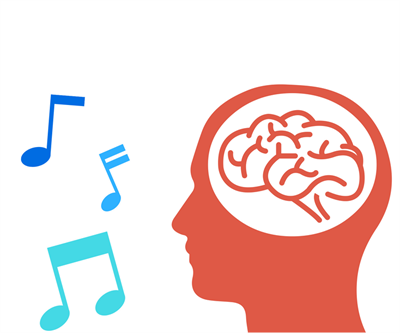How neuroscience can benefit the learning and performance of music

Understanding the factors that impact on brain development and brain function in musicians can empower music teachers to unlock each learner’s full potential, a new study published in Muziki: Journal of Music Research in Africa suggests.
Inette Swart of North-West University, South Africa shows how incorporating training in psychology into the music education system could be beneficial, particularly to those learners who have experienced traumatic events.
Neuroscientific research indicates that the right hemisphere of the brain, where the earliest-forming parts of the developing self and identity originate, appears to contribute most to the emotional meaning of music. The highly impressionable and malleable right-brain is also where early traumatic experiences are imprinted.
Thus, teachers should consider the role of music in a learner’s life and use this to their advantage in the teaching strategy, Swart says. For learners who have suffered significant trauma, it is particularly important to understand what role music fulfils in their lives, what best motivates them, and how their goals and reasons for participation in music might differ from a teacher’s expectations of them.
While memory for music is acquired and assessed through many different neural pathways, the processing of information involves brain structures – most notably, the amygdala and hippocampus – that are also involved in processing memories of fear. Neurons that fire together form connections and are likely to be retrieved together once an associated memory is recalled. This process is important in the memorization of music and also has implications for consciously separating the experience of fear and fear memories from the experience of learning and performing music.
To reduce the chances of debilitating stage fright patterns becoming established in previously traumatized learners, music performance should be associated with the anticipation of positive experience, Swart suggests. Such learners may benefit from practicing the art of performing in environments where they feel relatively safe, before playing at more important concerts or competitions.
Inette Swart said: “Music has great potential for providing emotionally and relationally reparative experiences, particularly, but not exclusively, to previously disadvantaged learners. Facilitating neural change takes discipline, while intersubjective models of human behavior, such as those proposed by neuropsychoanalyst Dr. Allan Schore, have shown clearly that human actions and development do not occur in isolation. It is time that this discipline becomes a shared societal responsibility.”
NOTE TO JOURNALISTS
When referencing the article: Please include Muziki: Journal of Music Research in Africa, Inette Swart, published by Taylor & Francis and the following statement:
* Read the full article online: http://www.tandfonline.com/doi/abs/10.1080/18125980.2016.1182386
For more information please contact:
Gabriella Sciarrone, Taylor & Francis Group
email: gabriella.sciarrone@tandf.co.uk
-----------------------------------------
About Taylor & Francis Group
-----------------------------------------
Taylor & Francis Group partners with researchers, scholarly societies, universities and libraries worldwide to bring knowledge to life. As one of the world’s leading publishers of scholarly journals, books, ebooks and reference works our content spans all areas of Humanities, Social Sciences, Behavioural Sciences, Science, and Technology and Medicine.
From our network of offices in Oxford, New York, Philadelphia, Boca Raton, Boston, Melbourne, Singapore, Beijing, Tokyo, Stockholm, New Delhi and Johannesburg, Taylor & Francis staff provide local expertise and support to our editors, societies and authors and tailored, efficient customer service to our library colleagues.
Tags:


